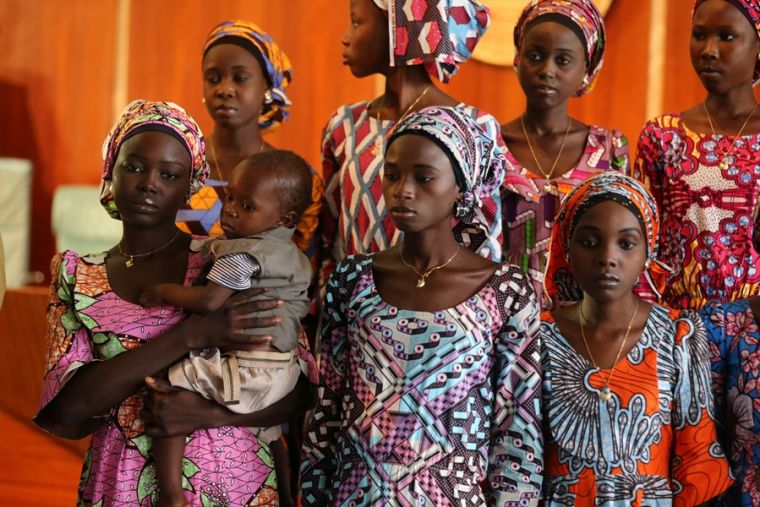'God Helped Us Come Out of Bondage,' Say 21 Nigerian Schoolgirls Freed by Boko Haram Militants

Freedom at last!
Joyful singing of Christian songs of praise filled the air as families celebrated the release from captivity of 21 of the more than 200 schoolgirls abducted in Chibok, Nigeria more than two years ago. Nearly all of the kidnapped girls were Christians.
"Praise the Lord! We are thankful," exclaimed Helen Musa, one of the 21. "We never imagined we would see this day. But with the help of God we were able to come out of bondage," she said, as quoted by God Reports.
"I felt like it was the day that I born her into this world," said Ruth Markus, the mother of Saratu Markus, one of the freed girls. "I danced and danced and danced," The New York Times quoted her as saying.
Videos of the ceremony held in the Nigerian capital Abuja showed reunited families in joyful celebration on Sunday.
Boko Haram militants kidnapped as many as 276 girls in April 2014 after storming their boarding school in Chibok. The Islamist militants have captured and killed many other schoolchildren, but the abduction of the Chibok schoolgirls was the one that caught the world's attention following the launching of the #BringBackOurGirls social media campaign.
About 50 of the girls managed to escape a few days after the abduction. But only one of them had been found—a girl named Amina Ali who was discovered this year roaming in the forest with a baby.
The Swiss government and the International Committee of the Red Cross reportedly helped negotiate the release of the girls.
After they left the Boko Haram camp, the girls walked for two days in the forest before arriving in a border town where they were able to contact Nigerian officials.
Recalling their ordeal, the freed girls told their parents that right after their abduction, the militants took them into their camp where they were offered a choice: Join the militants or become their slaves.
About half of them chose to join and marry the fighters and were taken away, never to be heard from, The New York Times reported.
Those who rejected the offer endured more than two years of servitude, doing washing, water fetching and cooking chores for the militants.
The girls said they lived in grass huts and were forced to convert to Islam. At first they were fed rice and maize. But then food became scarce.
During their captivity in the forest, the girls revealed that a few of them died.
Meanwhile, CNN reported that the other 114 girls are either dead, or don't want to leave their captors because they are married or have been radicalised.











